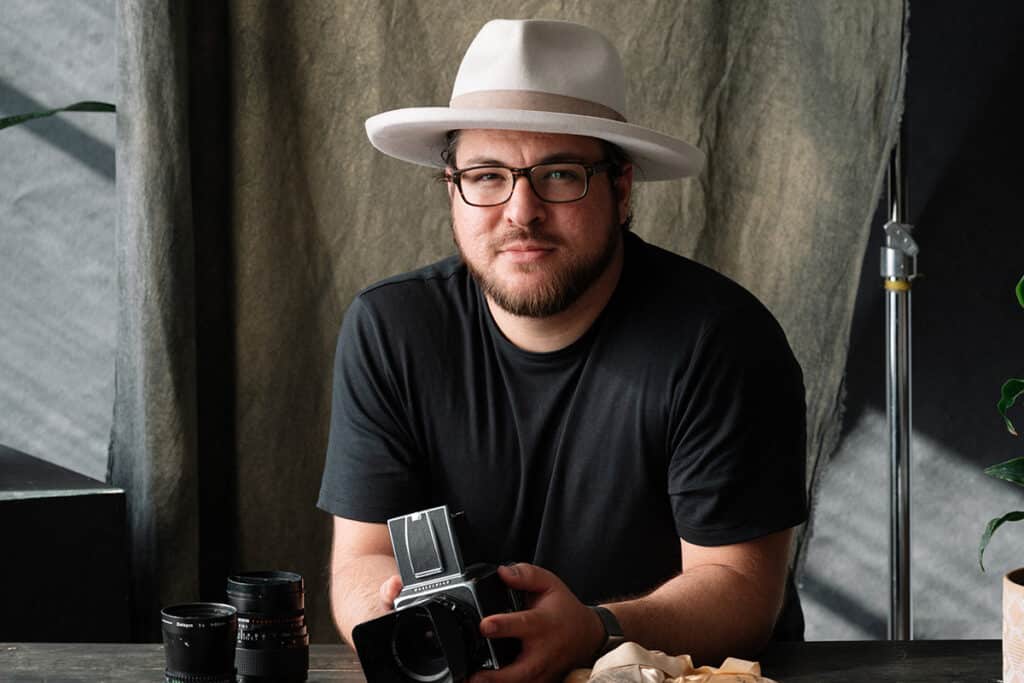When Janie Barrera first applied for a job with a fledgling enterprise called Accion Texas, she was rejected.
This was back in 1994, when the concept of micro-financing was just beginning to take root in the United States and a group of civic leaders and bankers had banded together to initiate such an effort in our state. Perhaps understandably, they were looking for someone with banking experience, and Barrera had none. Fortunately, former councilwoman Maria Berriozabal, who knew Barrera well, was on that founding committee. She strongly suggested that the hiring panel give her friend an opportunity to be interviewed. So they did. And the rest, as they say, is history. Fifteen years later, Barrera is still the president and CEO of Accion, a nonprofit corporation that provides small loans and management training to small business entrepreneurs. In fact, she has done such an outstanding job that her organization is today the largest microfinance lender in the country, with a portfolio of more than $20 million. Last December, the banking industry’s premier publication, American Banker, honored Barrera with its 2008 Innovator Award at the Plaza Hotel in New York City before an assembly of executives, government officials and legislators.
A dynamic yet soft-spoken woman and a former nun, Barrera was happy to be recognized but not particularly awed by the august assembly. Showing a poster of a group of big-name bankers to her visitor, she says, “They have all been in the news lately and for things other than awards.” It is, of course, a reference to the disastrous financial crisis of 2009, so we both chuckle. Then she continues, implying that the high-flying bankers could learn from her organization: “It’s appropriate that we are recognized at this time so people can see what a good investment is. They should all invest in portfolios like Accion’s. Despite the fact that we deal with high-risk clients, we have a 95 percent repayment rate. How’s that for sound investment?” Her “high-risk clients” are people who would not qualify for a loan from a conventional bank. Often they are individuals with low credit scores, no accounts or credit cards and not much collateral. They may have a dream and a willingness to work, but they need access to capital to either start or grow their businesses or simply to keep going. Sometimes just a few thousand dollars can make all the difference. Accion’s average loan is only $14,000, although a few go as high as $100,000.
“We are changing people’s lives,” says Barrera. “Most people think we make loans, but in reality we change lives with these loans. In today’s bad economy, we are even seeing clients with good credit ratings come to us for a loan.” They frequently walk in right off the street when they see the huge signs announcing to the world that inside the handsomely renovated building on South Hackberry resides a small business loan operation. Inside, someone is always willing to talk to them and explain the process.
Budding entrepreneur Michelle Norman, 48, did just that four years ago when she first heard about Accion from a community center on the East Side. With the help of her then-husband, she was trying to establish an eatery in Adkins, and she needed $500 to buy supplies. After she repaid that first loan, she returned twice for larger sums, paying those back promptly as well. Last year, however, following a divorce, Norman had to start all over again. Naturally, she went back to her reliable lender and received $1,200 to open her brand-new restaurant, Chit Chat Barbecue, which opened a couple of months ago. She simply couldn’t have done it without that help. “My credit was really bad, and I had all these other issues, and I couldn’t get money anywhere else,” says Norman, already a busy restaurateur who could hardly take time away from her customers to talk to us. “They took a chance with me. I shared my dream and passion with them, and they believed me. They were very helpful and encouraging.” Now she is Accion’s caterer of choice whenever they have a celebration or important business meetings. “I love those ladies over there,” says Norman. “They are the only ones who can call me the night before (to cater an event), and I’ll do it.” Another San Antonio success story is Ted Terrazas, who has parlayed a $10,000 loan into a flourishing business employing 400 people and bringing in $30 million in revenues. A former medical services officer for the Air Force, in 2001 he founded TerraHealth Inc., a company that provides medical staffing, IT and engineering services and consulting to governmental and private sector clients.
Though he had the experience and the knowledge for what he wanted to do, Terrazas had been rejected by seven local banks before he applied to Accion. “I didn’t have a lot of assets, and as a start-up you don’t have much history, so the banks turned me down,” he says. “Accion’s help was critical. We already had a government contract, but local banks didn’t consider that an asset. They have matured since, and now they welcome those contracts. In fact, now I have the opposite problem. Bankers are competing for my business.” Terrazas subsequently expressed his gratitude to Accion by serving on its board. But just as its name says, Accion Texas is not limited to San Antonio. It has offices in the Rio Grande Valley, Houston, Dallas, Arlington, Austin and El Paso, and its economic impact is considerable. According to its Web site, between 1994 and 2008, the organization made $70.5 million in loans, which produced an estimated $113 million in total economic activity. By the end of March 2009, the total loans rose to nearly $78 million. Even in the best economic times, this would be an impressive record. In this season of bank failures, it may also be instructive. So, what’s Accion’s secret?
“It’s 100 percent relationship building,” explains Barrera. “We build a relationship with each customer, and we help them along. We are also nonprofit. You don’t make much money on these small loans. All of us here could make more money working some place else. But we believe in what we are doing, and the customers believe in us.”
From the convent to the boardroom
Barrera attributes her passion for helping the underprivileged to her youth in Corpus Christi watching her parents work day and night to eke out a living from their small Mexican restaurant. “After 20 years they ended up with no pension,” she notes. “I believe we need to help people like my parents. We need to help them understand business practices and help them maneuver through the financial system. A lot of people don’t realize that you have to borrow money to make money and use your savings to leverage borrowed funds to grow the business.” Young Janie’s first job was as a waitress in her parents’ establishment, but at 18 she joined the order of the Sisters of Charity of the Incarnate Word, believing that by becoming a nun she could best help her fellow human beings. “I wanted to save the world,” she observes with a self-deprecating chuckle. “I quickly found out, however, that I couldn’t do that but that I could perhaps help one person at a time.” By the time she formally professed her vows, the diocese had a job for her: to start and run a Catholic TV program. The monsignor in charge handed her a camera with the instructions to learn how to use it on her vacation. She went on to develop two television studios and two radio stations and worked with community organizations to establish the first public cable TV channel in Corpus. Fifteen years into the job, earning only the small stipend that nuns received at the time, Barrera was informed that the bishop was hiring a male manager for the stations to whom she would have to report. What’s more, the new manager was to be paid $50,000 (in 1986), more than six times what she was making. She was “devastated.”
Not long after, Barrera made the decision to leave the convent, though she remains close to the sisters of her former religious community. She had already moved to San Antonio to pursue a master’s degree in business administration, so she decided to stay put. For the first time in her life, she found herself living alone. “To be able to be free appealed to me,” says the former religious. “I still live alone. I love the contemplative side of living alone, but I also love being in community.” Today, Barrera lives in the third oldest house in the King William District, a house that she renovated and enlarged, the better to welcome various community groups she likes to host. “One of my gifts is hospitality,” explains the lady of the house, “and when people ask me, I let them use my house.” Her high school held a recent reunion there; Rep. Mike Villarreal used it for a fund-raiser, as did the founders of Santuario Sisterfarm, a nonprofit farm-cum-publishing enterprise devoted to eco-friendly living and women’s spirituality. Barrera herself cultivates an organic vegetable and herb garden in her backyard that Sister Carol Coston of Santuario helped her plant. (Barrera serves as vice-president of Santuario Sisterfarm.) While giving me a tour of the premises, she proudly points out the asparagus, basil, oregano, lavender, tomatoes, eggplant and more. She notices that the spinach looks a little shriveled. It will need some TLC.
Starting and growing things appeals to her, she explain, whether plants or organizations. But growth is always a learning process, and Barrera and her colleagues had to learn a few lessons along the way as well. When Accion first started, it pretty much emulated the international model of microlending established by Nobel Prize winner Dr. Muhammad Yunus to help alleviate poverty in Third World countries. The model was based on straightforward lending of very small sums of money and on something called peer group lending, which consisted of a group of people co-signing for each other. “That did not work,” says Barrera flatly. “In the United States we have a different and more complicated financial system than in the developing world. People didn’t want to co-sign for each other because some individuals had bad credit. Also, our maximum $3,000 loan often wasn’t enough. What can you do with $3,000? So we asked the customers what they needed, and the answer was clear: larger, individual loans.” Eventually, financial education was also added to help clients with accounting, payroll and other aspects of business.
Another thing she and her cadre learned is that goats are not reliable collateral. (Yes, the learning process has its funny moments.) Barrera tells the story of a small restaurateur in the Valley who listed her goats as collateral. When Accion reps visited her property months later, the goats were gone. “We ate them,” explained the unfazed lady.
Under Barrera’s leadership, Accion has come a long way from those early days. As president and CEO, she is responsible for much of the fund raising, both for operating expenses and for loan capital, which is solicited from both individuals and institutions. The latter may come in the form of outright donations or as investment funds that currently receive a 4 percent annual return. Banks are prominently listed among the donors, while investors tend to be concerned individuals and socially responsible organizations such as religious communities and other Christian entities. When Federal Reserve Chairman Ben Bernanke came to San Antonio to address a summit of U.S. microlenders in 2007, he included praise for Barrera and Accion in his speech. One thousand people in the audience heard about the Texas success story. “That’s what put us on the national radar screen,” notes the CEO. The exposure helped attract new grants, including $2.5 million from the Wachovia Foundation. Even more exciting is the recent agreement with Citigroup Inc. – the first of its kind in the United States – that calls for the New York-based company to purchase up to $30 million in loans from Accion over five years. The San Antonio organization continues to service the loans, but the risks and potential profits will be shared.
In another innovative move, Accion Texas has begun providing underwriting and loan servicing to its counterparts in other states. These developments promise to change the face of the microfinance industry across the board. Terrazas, who watched Barrera in action during his tenure on the board, attributes this phenomenal growth to the leader’s vision: “It’s all due to her leadership and creative vision that convince people to give her their trust. That sort of success doesn’t happen by accident. Janie is an incredible woman!”
And a woman whose dedication remains strong.
“I believe my purpose in life is to help others; that’s my calling,” says the 54-year-old CEO, echoing her 18-year-old self’s dream of saving the world. “I am thankful that I have the voice to tell bankers and Federal Reserve chairmen that small businesses are the ones that move our economy, and I think some of the things we have done will bring about more help for microfinancing throughout the United States. But there’s still a lot to do.
“My dream is that we will become the first microfinance organization in the nation to reach self-sufficiency and not need charity any more.”
Author: Jasmina Wellinghoff
Photographer: Liz Garza Williams




